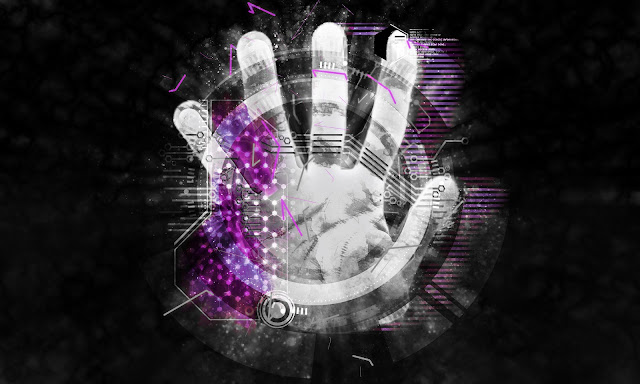Here´s some good material on how to protect your online life using the checkbox based* digital privacy concerns concept.
For more informative articles, visit website https://trendyvibesdaily.blogspot.com
Rapidly expanding terrorizing abuses of digital privacy
The internet and other digital technologies have made our lives easier by bringing information to us in ways that we never could before, but also making it nearly impossible for consumers to expect privacy. This is why cyber security threats have turned into digital privacy and some of these are below:
Massive amounts of data from us are being gathered — by companies and governments. This data may range from your browsing habit, purchase history to location and personal communication. There is value in some data collection as it can help improve services, however a large proportion of what they collect ends up being used instead for targeted advertising or surveillance; and because people are vulnerable to manipulation.
Cyber Security Threats: Cyber-attacks, like hacking, phishing and ransomware are common threats to your data and various digital assets. As their sensitive data is stolen, such as passwords and other financial details plus personal documents so that they can be utilized for malicious purposes — identity fraud leading to both potential cost to themselves along with a reputational harm.
Anonymous online, less pebbles of sand to bury my head beneath: At any rate as aspects of our lives continue their relentless migration into the digital sphere (before taking ever more insidious forms), it becomes harder and harder for us all to maintain some veneer or possible degree of anonymous status. In an age when we tweet, like and buy at the click of a button on social media or online shopping sites our digital footprints are tangible so marketers, advertisers can easily deduce many details about us from what they post to their beliefs.
Significance Of Digital Freedom Violation
Identity Theft: If someone steals personal information, they can also steal an identity to create unauthorized accounts and commit a slew of crimes under the victim's name.
Money theft: Theft of money is likely to be one of the most direct and obvious consequences for users whose personal financial information, such as credit card or bank account details has been targeted. This may result in victims being held accountable for unauthorized transactions or forced to go through arduous legal battles to get their money back
Reputational Fallout: With privacy breach information instantly shareable on social media, it can spread like wildfire causing loss of face and relationships for an individual. This can cause a business embarrassment, loss of customers confidence and legal penalties.
Psychological Impact: The reduction of privacy can cause the person to feel vulnerable, acts as a source for anxiety and stress. It can feel scary to know that your private information is now out there somewhere very likely in the hands of strangers, it might even leave you feeling helpless.
Securing Your Digital Privacy: Real-Life Advice
More and more dangers are arising for digital privacy, which is why it is important to do something about the use of your data on the internet. Some helpful advice on how to protect your online privacy
Strong, Unique Passwords: Strong unique passwords for each of your services is still one of the simplest most effective ways to secure online accounts. Do not use easy to guess passwords like "password123" and you might want to think about using a password manager in order for them create complex passwords that are stored.
Put in Place Two-Factor Authentication (2FA): If a platform offers 2-FA, utilize it as much as possible. 2FA — (Two-Factor Authentication) a way gives your password an additional layer of security by means of asking for further verification like entering the code which had been sent to your phone.
Be careful with open Wi-Fi — Open Wi-fi networks always be a target for hackers. Never access your bank or any other majorly sensitive app while on public Wi-Fi. If you must use public Wi-Fi, do so through a Virtual Private Network (VPN) to keep everything coming and going encrypted.
Restrict Gilkerson, MSW Director of Development → Limit Social Media Sharing: Be mindful with post too widely your personal information on social media. Do not post about your travel plans, home address or phone number as this can be used by bad actors Audit your privacy settings for all social media platforms.
Always Keep Software Up to Date: Be sure your devices, apps and operating systems are updated with the latest security patches. The latest patches in software updates also come with solutions to known vulnerabilities, which can help you avoid falling prey to a cyberattack.
Encrypted Communication Tools: If you are sharing sensitive information online, do so via encrypted messaging apps e.g. Signal or WhatsApp Encryption makes sure than none, but the intended recipient can read your messages, which protects communications against some beady-eyed directory lurker.
Beware of Phishing: Be careful with phishing — fake emails or messages that appear to be from companies you do business asking for some personal information. The usual caution needs to be taken — never click on links from unsolicited emails and always exercise the same vigilance if you are requested for your personal information through an email or message that comes outside of its platform
Check App Permissions: A lot of apps ask for personal information (like your location, contacts or camera) from you. Keep an eye in the permissions you allowed apps and e-revoke some of those that do not need them.
VPN-It is the acronym of Virtual Private Network. Hide your ip residue (super common way to protect privacy for what we do on the internet) That it makes things even more difficult for hackers (and your ISP / gov) to intercept what you are doing on the Internet.
Educate: Stay informed on digital privacy risks and security practices. The safer you are to the dangers, better prepared your virtual persona.
Conclusion



















0 Comments